Premium Only Content
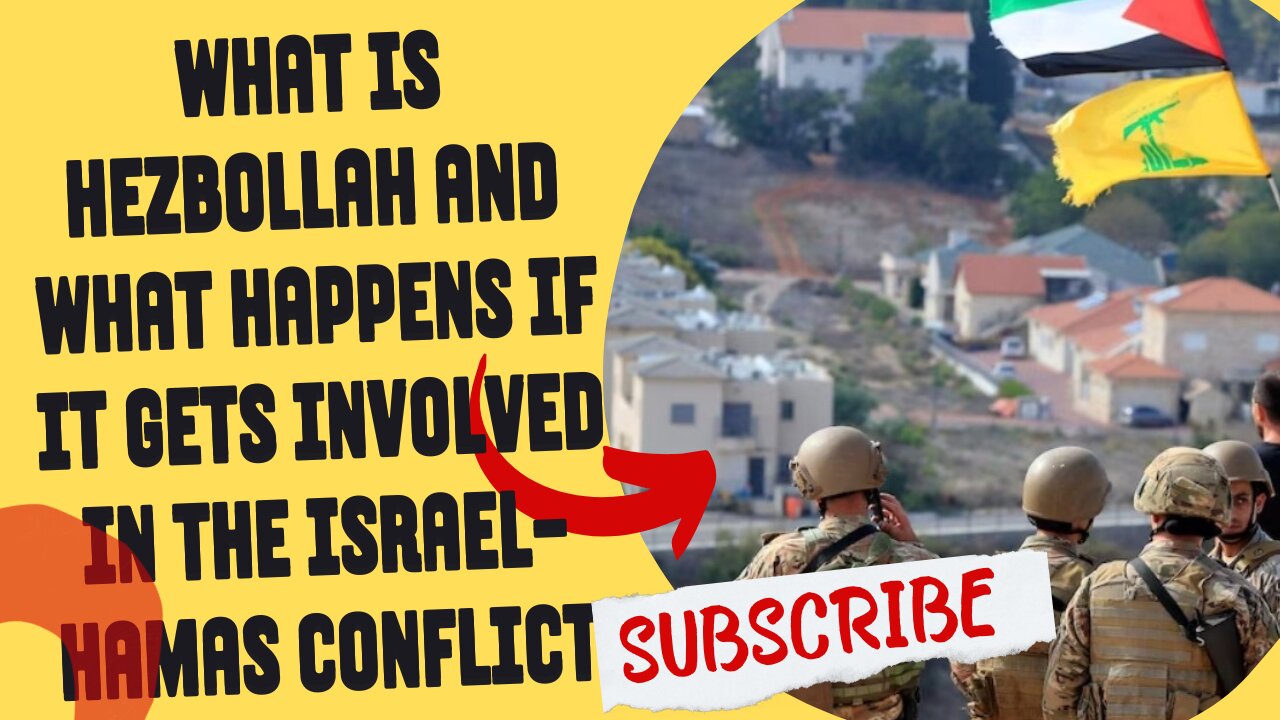
What is Hezbollah and what happens if it gets involved in the Israel-Hamas conflict
What is Hezbollah and what happens if it gets involved in the Israel-Hamas conflict?
Only days after Palestinian militant group Hamas launched a multi-front terror attack on Israel, Lebanese armed group Hezbollah joined the conflict by firing a barrage of rockets into a disputed area on the border of Lebanon and Israel "in solidarity" with Palestine.
The cross-border exchange has continued back and forth over several days, sparking concern about the Israel-Hamas war spreading wider in the region.
Here's some background on Hezbollah and what role it plays in the conflict.
Live: Stay across the latest on what's happening today with the Israel-Gaza war
What is Hezbollah?
Hezbollah is a militant Shia Muslim group and a major political party based in Lebanon.
It was formed in 1982 amid the Lebanese civil war when Israel invaded Lebanon, and backed by Iran's Islamic Revolutionary Guard Corps.
The group remains backed by Iran and has significant sway over the Lebanese state.
Its military power grew after deploying to Syria in 2012 to help President Bashar al-Assad fight mostly Sunni rebels.
In 2021, Hezbollah leader Sayyed Hassan Nasrallah said the group had 100,000 militants.
Some governments, including Australia, the United States and Saudi Arabia, deem the entirety of Hezbollah a terrorist organisation, whereas the European Union only designates the military arm of Hezbollah as a terrorist group.
What is the difference between Hamas and Hezbollah?
The two groups share a common enemy in Israel and both receive funds and weapons from Iran, but they have their differences.
While Hezbollah has its roots in the Shia sect of Islam, which is predominant in Iran, Hamas is a mainly Sunni Muslim group.
Hezbollah's military capabilities far outweigh those of Hamas, making it a more dangerous opponent to Israel.
It has more sophisticated weaponry, well-trained and battle-experienced troops, and closer ties to Iran.
How has Hezbollah been involved in this conflict?
On Sunday, Hezbollah fired several rockets and shells at three Israeli positions in a disputed area on the border between Lebanon and Israel.
The militant group said the rockets were fired "in solidarity" with the Palestinian people, Reuters reported.
"Our history, our guns and our rockets are with you," senior Hezbollah official Hashem Safieddine said at an event in Beirut.
On Monday, Palestinian militants slipped from Lebanon into Israel, sparking Israeli shelling into southern Lebanon.
The militants said they had wounded seven Israeli soldiers and Israel said its own forces shot and killed several of the gunmen who crossed into the country, according to The Associated Press.
An anonymous Lebanese security official told The Associated Press six rockets were fired from southern Lebanon into northern Israel on Tuesday evening, but it was not immediately clear who fired them.
The cross-border violence marked a significant expansion in the conflict between Israel and Palestinian militants in Gaza to the Israeli-Lebanese border further north.
Senior Hamas official Ali Barakeh said the group's allies, Iran and Hezbollah, did not know of the attack on Israel beforehand.
But, they "will join the battle if Gaza is subjected to a war of annihilation", he told The Associated Press in his office in Lebanon's capital, Beirut.
Initial US intelligence suggests senior Iranian government officials were surprised by Saturday's attack by Hamas, but a full conclusion is yet to be reached, CNN reported quoting "multiple sources familiar with the intelligence".
"Iran likely knew Hamas was planning operations against Israel, but without the precise timing or scope of what occurred," one US official told CNN.
Have Hezbollah and Israel fought before?
Israel has a long history of conflict with both the state of Lebanon and Hezbollah.
Hezbollah was the only militia to keep its weapons at the end of the Lebanese civil war in 1990, and it continued to fight Israeli forces occupying the country's predominantly Shia south, according to Reuters and the Council on Foreign Relations.
After years of conflict, Israel withdrew in 2000 but continued to clash with Hezbollah, especially in Shebaa Farms, a disputed area on the border of Israel and Lebanon.
In 2006, the conflict escalated into a brutal month-long war, with Israel badly underestimating Hezbollah's military capabilities.
The war killed more than 1,000 people in Lebanon, mostly civilians, and more than 100 Israelis, mostly soldiers.
The two sides have traded sporadic fire over the border since then, avoiding a major conflict.
What happens now?
Hezbollah has not formally said it is joining the fighting, but its involvement has raised concern over a wider conflict in the area.
For Israel, that would mean simultaneously fighting Hamas on its southern border and Hezbollah on its northern border.
There are also fears further involvement from Hezbollah could also risk an Israeli retaliation towards Iran.
US President Joe Biden has directed his team to reach out to counterparts in the Gulf and neighbouring countries to try to prevent a spiral into a wider war, especially focused on keeping Hezbollah from opening a second front on Israel's northern border, Reuters has reported, quoting US administration officials.
American ships in the region have been shifted closer to deter an expansion of the conflict against Israel, a senior US Defense Department official told The Associated Press.
The official said the US was deeply concerned Hezbollah and other Iranian-backed groups would make the wrong decision to try to "pile on" and widen the war.
-
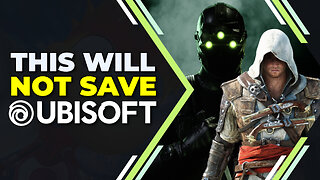 4:27
4:27
Reforge Gaming
12 hours agoTHIS will not save Ubisoft.
15.2K4 -
 7:35
7:35
Tactical Advisor
1 day agoNEW Springfield Prodigy Compact (FIRST LOOK)
43.9K4 -
 16:45
16:45
IsaacButterfield
1 day ago $2.64 earnedWoke TikToks Are DESTROYING The World
23.1K25 -
 1:09:27
1:09:27
State of the Second Podcast
16 hours agoThis is Why We Don’t Trust Politicians (ft. @stones2ndsense)
20.6K3 -
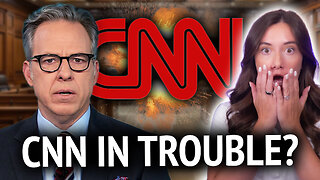 10:19
10:19
Chrissy Clark
13 hours agoCNN’s BILLION Dollar Defamation Trial
10.6K7 -
 1:00:27
1:00:27
Trumpet Daily
20 hours ago $3.91 earnedCongress Humiliates Itself - Trumpet Daily | Jan. 15, 2025
12.7K15 -
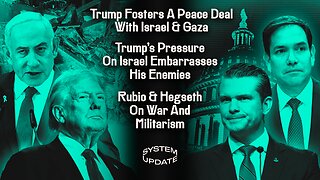 1:49:46
1:49:46
Glenn Greenwald
1 day agoTrump Fosters A Peace Deal With Israel & Gaza; Trump's Pressure On Israel Embarrasses His Enemies & Provides Foreign Policy Clues; Rubio & Hegseth On War And Militarism | SYSTEM UPDATE #389
128K184 -
 1:28:46
1:28:46
Donald Trump Jr.
19 hours agoOut of this World: Breaking News Investigation on Secret Alien Aircrafts, Live with Ross Coulthart & Lue Elizondo | TRIGGERED Ep.207
333K480 -
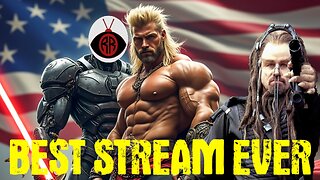 1:39:31
1:39:31
Space Ice
16 hours agoSpace Ice & Redeye: Battlefield Earth & Rob Schneider
86.8K7 -
 1:33:38
1:33:38
Flyover Conservatives
1 day agoAMANDA GRACE | Prophetic Warnings Ignored: What Happens When Leaders Defy God | FOC Show
72.3K45